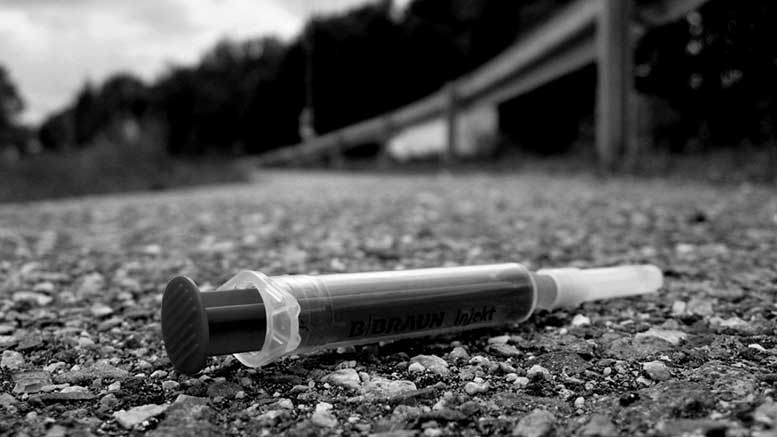Joyce announces comprehensive legislation addressing opiate addiction epidemic.
BOSTON – Today, Senator Brian A. Joyce (D-Milton) announced the passage of critical, comprehensive legislation to combat the opiate addiction epidemic.
“The opiate epidemic has hit Norfolk, Plymouth, and Bristol counties particularly hard, with fatal opioid overdoses in the three counties rising from 128 in 2004 to 290 in 2014,” said Joyce. “This bill, while not a silver bullet, lays a solid foundation upon which we can continue to build towards prevention, accessible treatment, and long-term recovery.”
The bill, An Act relative to substance use prevention, takes a multi-pronged approach to substance abuse by focusing on prevention, holding the pharmaceutical and insurance industries accountable, requiring proper training of prescribers, and addressing drug overdoses.
In order to prevent substance abuse, the bill adds “Screening, Brief Intervention, and Referral to Treatment (SBIRT) to the list of screenings a school conducts to identify youth engaging in substance abuse behaviors. These screenings would be completely confidential and conducted by medical professionals. Parents would be notified prior to the screenings and would be able to opt their children out of the screenings.
The bill would also allow an individual to voluntarily sign a binding directive to practitioners not to prescribe or administer an opiate drug in non-emergency situations. Patients prescribed opiate drugs would be able to request a partial fill of their prescription from a pharmacy to ensure unnecessary pills are not left in their homes.
To hold the pharmaceutical industry accountable, the bill requires pharmaceutical companies to establish or participate in drug take back programs to further reduce the number of pills in homes. Insurance companies would be required to report denials of substance abuse or mental health treatment to the Health Policy Commission’s Office of Patient Protection.
Under an amendment filed by Senator Joyce and approved by the Senate, patients would be able to appeal coverage denials directly to the Office of Patient Protection and overturned denials would be reviewed for violations of the federal Mental Health Parity and Addiction Equity Act of 2008 and applicable state mental health and substance abuse parity laws by the Division of Insurance.
The bill requires appropriate training on Narcan administration and response to drug overdose calls for police recruits. Prescribers would be trained on effective pain management, identification of patients at risk for substance abuse, counseling of patients on the addictive nature of medications, and appropriate quantities for addictive medications as a prerequisite to obtaining or renewing their professional licenses.
The bill would also:
Prevent Addiction and Improve Public Health
- Increase access to specialists who specialize in pain management and treatment by creating a program for remote consulting for physicians working with individuals experiencing chronic pain and creating a holistic plan for each patient, similar to the model used for access to child psychiatry.
- Require the Drug Formulary Commission to create and maintain a list of pain management non-narcotic pharmaceutical products that may be recommended as an alternative to opiate medication when appropriate
- Require prescribers to evaluate a patient’s risk factors, history of substance abuse, and current medications, utilize the prescription drug monitoring program, and enter into a pain management agreement with the patient, prior to prescribing an extended-release long-acting opioid in a non-abuse deterrent form for the first time
- Requires drivers education courses to include a module on the science related to addiction and addictive substances
- Bans the sale, manufacture, or possession of powdered alcohol
- Requires informed consent from the parent or guardian of a minor before a practitioner prescribes a controlled substance that contains an opioid
Hold Industry Accountable
- Require coverage for non-narcotic pain management to complement someone’s pain management plan or defer their reliance on opioids when appropriate. Each insurance carrier would be required to develop a plan for access to non-narcotic pain management, as a requirement for accreditation by the Division of Insurance.
- Require insurance carriers to develop a prescription drug safety plan, with appropriate safeguards against high-volume opiate prescribing, similar to the model implemented by Blue Cross Blue Shield in recent years Address Drug Overdoses
- Require additional training for police in the state’s “Good Samaritan” law which allows an individual to call for emergency help when someone is experiencing a drug overdose without fear of arrest or criminal charges
- Protect “Good Samaritans” or first responders who administer naloxone to an overdose victim from civil liability. Currently the state only guarantees protection from criminal prosecution for carrying and administering this prescription product.
- Require that Gabapentin, a drug increasing in popularity for its enhancing effect on opiate misuse, to be reported and monitored by the Prescription Monitoring Program This is the second piece of legislation passed by the Senate addressing the opioid epidemic. The first, signed into law last August, expanded substance abuse treatment options by requiring insurers to pay for at least 14 days of inpatient substance abuse treatment and requiring treatment centers to provide patients with extensive discharge plans including information on follow-up, outpatient treatment, links to workforce training and job opportunities, and information on family support services.
The bill now goes to the House for its consideration.
###
Senator Brian A. Joyce represents the Norfolk, Bristol and Plymouth District consisting of Avon, Braintree, Canton, Easton, East Bridgewater, Milton, Randolph, Sharon, Stoughton, and West Bridgewater. Senator Joyce currently serves as Assistant Majority Leader. He can be reached at 617-722-1643 or via email at [email protected].






Be the first to comment on "Joyce works to fight opiate addiction epidemic"